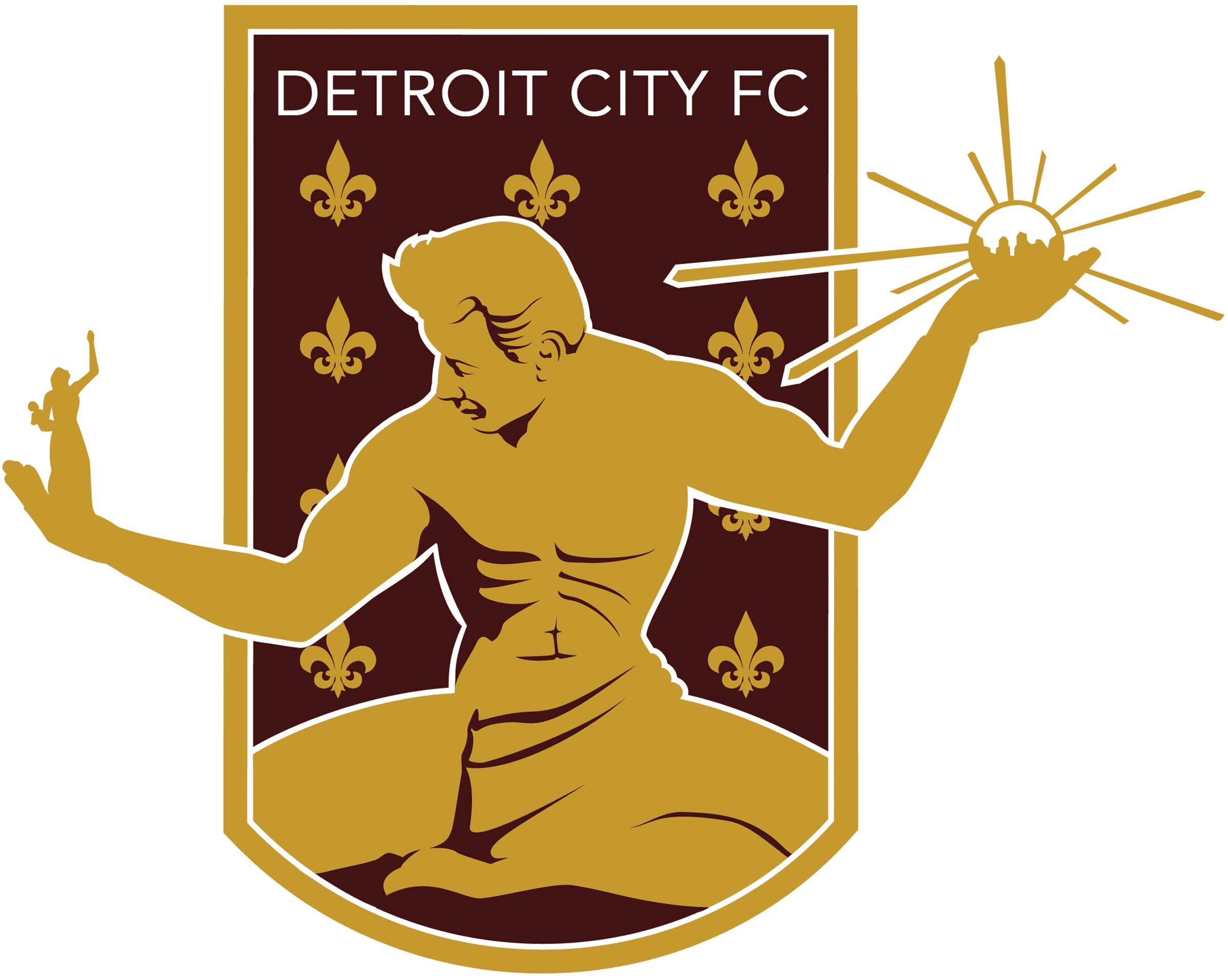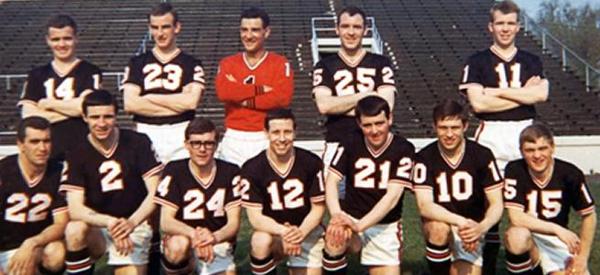In this new series at https://www.detcityfc.com, DCFC welcomes journalist and author Ian Thomson as he takes a look at the history of Glentoran FC, the Detroit Cougars and the summer of 1967 ahead of the 50th anniversary of the Cougars and DCFC vs. Glentoran at Keyworth Stadium on May 27. 2017.
Northern Irish club Glentoran might initially seem to be an unlikely choice of opponent for Detroit City F.C.’s second annual international friendly match to be held next May. Yet there is an alluring and historic symmetry between the blue-collar semi-professionals from East Belfast and the grass roots amateurs from Hamtramck that makes the Glens the perfect guest for another romantic afternoon at Keyworth Stadium.
Glentoran’s players will touch down at Detroit Metropolitan Airport almost 50 years to the day since their predecessors made the same journey to represent the Motor City in the 1967 United Soccer Association summer league. Belfast, like Detroit, boomed as the 20th century approached when shipping, shipbuilding and heavy manufacturing turned it into an industrial heartland. It endured turmoil when its traditional businesses withered and deep-rooted civil rights issues led to conflict, division, communities being segregated and spiraling crime rates in the latter 1900s. Belfast, like Detroit, has channeled its steely resolve into a flourishing renaissance in recent times.
Le Rouge followers found kindred spirits in the F.C. United of Manchester fans that attended Keyworth this year to honor supporter-built soccer. Shared experiences between the people of Detroit and Belfast, together with the cities’ unusual soccer connection, lends itself to a worthy 50th anniversary celebration of the short-lived Detroit Cougars franchise.
So how did Glentoran end up representing Detroit almost 50 years ago?
The success of the 1966 FIFA World Cup Final on North American television had prompted rival groups of sports promoters to hurriedly launch the United Soccer Association tournament and the rival National Professional Soccer League as America’s first coast-to-coast professional soccer leagues. Detroit Lions owner William Clay Ford Sr. was among the backers of the 12-team USA circuit faced with an urgent dilemma: Where were the players going to come from given that there was no existing professional soccer structure in the United States?
Negotiations were held with soccer associations in Europe and South America to secure the services of entire teams during their summer offseason. Clubs ultimately arrived from England, Scotland, Italy, Holland, Brazil, Uruguay and both sides of the Irish border with Glentoran allocated to represent Ford’s Detroit Cougars franchise.
These were different times for European minnows when the chasm created by broadcast revenue was merely a crevice that could often be hurdled by hard graft, determination and a slice of luck. Glentoran were regular entrants to Europe’s continental competitions during the 1960s. They had caused a stir in October 1966 when they held Glasgow Rangers to a 1-1 tie in the European Cup Winners’ Cup in front of 35,000 fans at The Oval stadium in East Belfast. Rangers won the second leg en route to reaching the final where Bayern Munich edged them in extra time.
Belfast’s working class environs made the city a hotbed of soccer talent. Danny Blanchflower began his career at Glentoran before captaining Tottenham Hotspur to an English league and F.A. Cup double in 1961. His younger brother, Jackie, won two league titles with Manchester United before sustaining injuries in the Munich air disaster of 1958 that extinguished his career. The achievements of the Blanchflower brothers were eclipsed in the 1960s after Glentoran had snubbed a wiry local kid that they deemed too small to play soccer. Manchester United soon gave that teenager, George Best, the platform to display his rare gift to the world.
Glens head coach John Colrain couldn’t call upon players of that caliber for his side’s two-month soiree to Michigan in 1967. Colrain couldn’t even call upon the services of some of his regular players. Goalkeeper Albert Finlay stayed home due to his commitments as a steeplejack while Trevor Thompson, the club’s all-time leading goalscorer, struggled to get away from his day job in a flax-spinning factory.
The first game in Cougars’ history was played in the suburbs of Boston on May 28, 1967 when Glentoran tied 1-1 with their southern Irish counterparts Shamrock Rovers, playing as the Boston Shamrock Rovers. A contentious offside flag denied the Cougars a late winner and drew a stinging assessment from traveling Glens’ chairman Harry McNeely.
“They are attempting to import players to improve the standard here, but referees and linesmen are needed as well,” McNeely told journalists after the game. Some soccer sentiments never change.
Glentoran’s debut in front of their “home” fans at the old University of Detroit Stadium took place on June 4 against the Vancouver Royal Canadians, represented by English side Sunderland. A crowd of 11,629 cheered the Cougars to a 1-1 tie against superior opponents. That pluckiness became a feature of Detroit’s campaign as the Cougars finished the season with a 3-3-6 record, three points back from the Eastern Conference’s top spot and a place in North America’s first continent-wide championship decider.
“You know, I had been told by everyone that Glentoran would not live with the opposition when they came here,” Cougars executive Jack Anderson said after the season’s end. “Even some people in Belfast assured me they would get hiding after hiding.
“The results have made a nonsense of those statements.”
Glentoran became a respected underdog in a city that is accustomed to fighting its corner. The club’s current goals of making positive cultural, social and educational contributions to their community through the game of soccer are closely aligned with the mission of Detroit City F.C.
Shared values. Shared history. The prospect of these two great teams from Belfast and Detroit sharing the Keyworth Stadium field next May is one to excite fans from both cities.
Ian Thomson is a journalist and author based in Washington, D.C.
His book “Summer Of ’67: Flower Power, Race Riots, Vietnam and the Greatest Soccer Final Played on American Soil” tells the story of the United Soccer Association tournament via interviews with 16 players including former Glentoran winger Eric Ross.
“Summer Of ‘67” is available in Kindle and paperback formats via Amazon.com.
























































































































































































































































































































